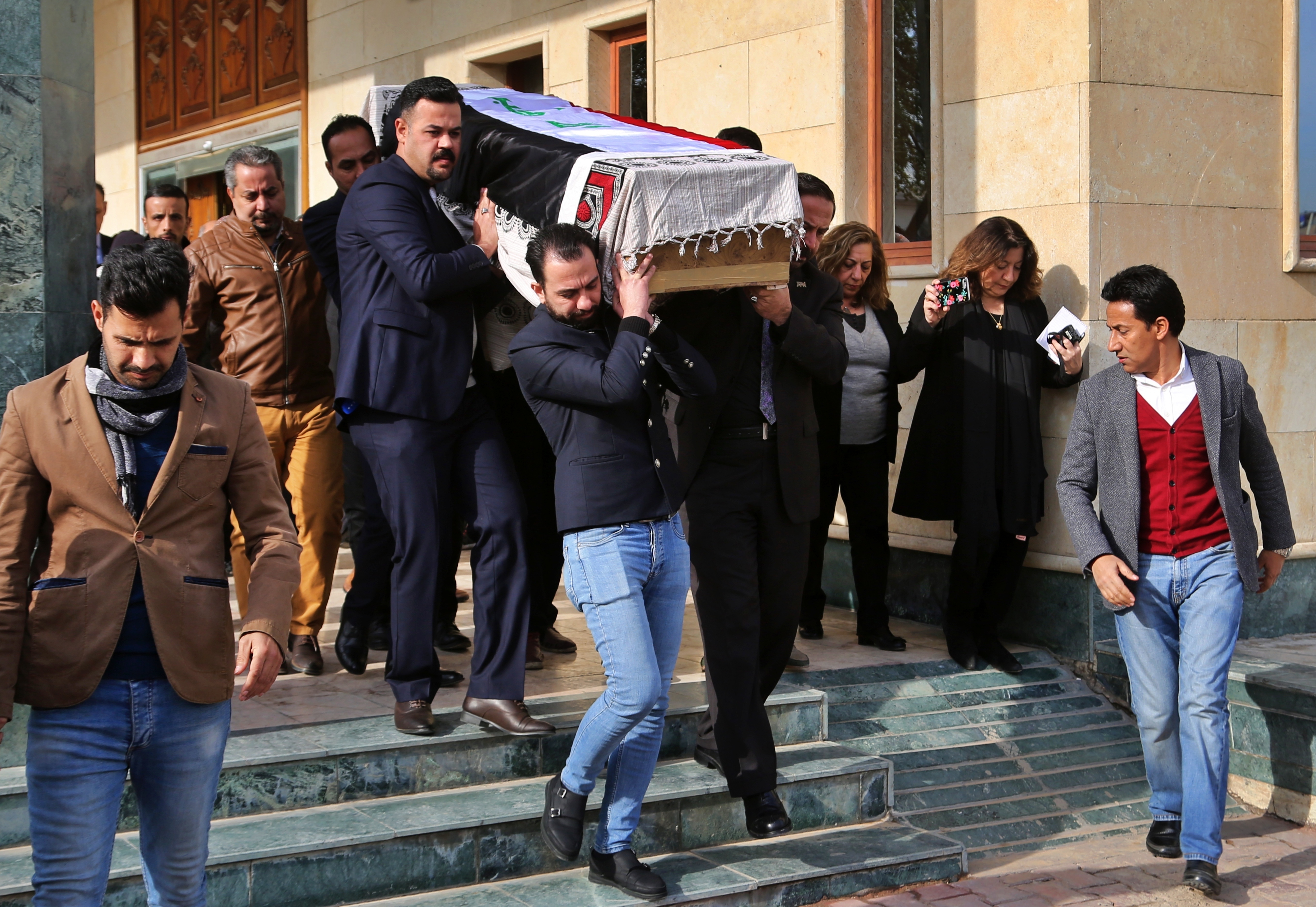
Iraq says goodbye to its beloved archaeologist al-Gailani
BAGHDAD (AP) — Iraq on Monday mourned the loss of Lamia al-Gailani, a beloved archaeologist who helped rebuild the Baghdad museum after it was looted following the 2003 U.S.-led invasion to oust Saddam Hussein.
Al-Gailani, who died in Amman, Jordan, on Friday at the age of 80, was one of Iraq’s first women to excavate the country’s archaeological heritage.
Relatives, colleagues, and cultural officials on Monday gathered at Baghdad’s National Museum, the country’s leading museum, to pay their respects before moving her remains to the Qadiriyyah mosque for prayers and later interment.
A devotee of her country’s heritage, al-Gailani lent her expertise to restore relics stolen from the museum for its reopening in 2015. She also championed a new antiquities museum for the city of Basra, which opened in 2016.
“She was very keen to communicate on the popular level and make archaeology accessible to ordinary people,” said her daughter, Noorah al-Gailani, who curates the Islamic civilizations collection at the Glasgow Museum in Scotland.
“It is a big loss, the passing of Dr. Lamia al-Gailaini, who played a great role in the field of archaeology, even before 2003,” said the deputy minister of culture, Qais Hussein Rashid.
The restored collection at the National Museum included hundreds of cylinder seals, the subject of al-Gailani’s 1977 dissertation at the University of London. These were engraved surfaces used to print cuneiform impressions and pictographic lore onto documents and surfaces in ancient Mesopotamia, now present-day Iraq.
Still, thousands of artefacts remain missing from the museum’s collection, and al-Gailani bore the grief of watching her country’s rich heritage suffer unfathomable levels of looting and destruction in the years after Saddam’s ouster.
“I wish it was a nightmare and I could wake up,” she told the BBC in 2015, when Islamic State militants bulldozed relics at the ancient Assyrian city of Nimrud near present-day Mosul.
Born in Baghdad in 1938, al-Gailani studied at the University of Cambridge in Britain before finding work as a curator at the National Museum in 1960. It was her first job in archaeology, her daughter said.
She returned to Britain in 1970 to pursue advanced studies, and she made her home there. Still, she kept returning to her native country, connecting foreign academics with an Iraqi archaeological community that was struggling under the isolation of Saddam Hussein’s autocratic rule and the U.N. sanctions against him.
In 1999, she published “The First Arabs,” in Arabic, with the Iraqi archaeologist Salim al-Alusi, on the earliest traces of Arab culture in Mesopotamia, in the 6th through 9th centuries.
She would bring copies of the book with her to Baghdad and sell them through a vendor on Mutanabbi Street, the literary heart of the capital, according to her daughter.
After the U.S.-led invasion, al-Gailani continued to travel to Iraq, determined to rescue its heritage even as the country convulsed with war.
At the time of her death, she was working with the Basra Museum to curate a new exhibit set to open in March, said Qahtan al-Abeed, the museum director.
“She hand-picked the cylinder seals to display at the museum,” said al-Abeed.
The Western Journal has not reviewed this Associated Press story prior to publication. Therefore, it may contain editorial bias or may in some other way not meet our normal editorial standards. It is provided to our readers as a service from The Western Journal.
Truth and Accuracy
We are committed to truth and accuracy in all of our journalism. Read our editorial standards.
Advertise with The Western Journal and reach millions of highly engaged readers, while supporting our work. Advertise Today.












